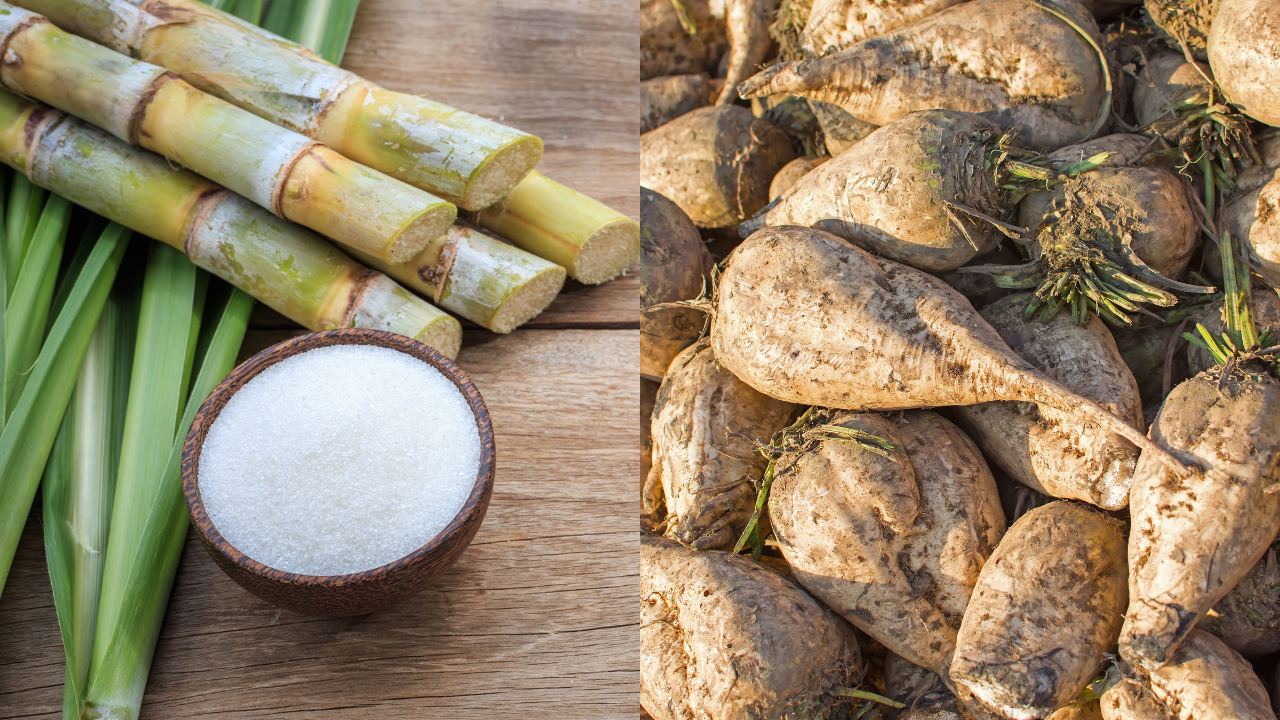Many people compare beet sugar vs cane sugar to understand their variations in sweetness and granulation.
Many people compare beet sugar vs cane sugar to understand their variations in sweetness and granulation.
Blog Article
Discover the Uses and Conveniences of Beet Sugar Vs Cane Sugar in Your Daily Diet
Checking out the distinctive qualities of beet and cane sugar exposes greater than simply their sweetening capacities; it highlights their one-of-a-kind influence on health and cookeries. Beet sugar, known for its subtle taste, is frequently favored in fragile desserts, whereas cane sugar, with its tip of molasses, includes splendor to durable dishes. Each type holds its own dietary profile and glycemic effects, welcoming a deeper understanding of their duties in a well balanced diet and sustainable intake methods.
Origin and Manufacturing Procedures of Beet and Cane Sugar

The unique climates and soil types required for growing sugar beets and sugarcane add to distinctions in their farming practices and geographical circulation, influencing the economics and sustainability of their production. beet sugar vs cane sugar.
Nutritional Contrast Between Beet Sugar and Cane Sugar
In spite of stemming from different plants, beet sugar and cane sugar are nutritionally very similar, both mostly including sucrose. Each gives regarding 4 calories per gram, equating to about 16 calories per tsp. Structurally, both sugars are composed of approximately 99.95% sucrose, with minimal amounts of other materials like wetness and trace minerals, which do not substantially modify their dietary accounts.

Ultimately, when selecting between beet sugar and cane sugar based upon nutritional content alone, both deal the same advantages and downsides as they are essentially forms of the very same molecule-- sucrose, offering quick energy without various other nutrients.
Effect On Wellness: Glycemic Index and Caloric Content
Discovering better into the results of beet sugar and cane sugar on health, it is essential to consider their glycemic index and calorie material. The glycemic index (GI) of both beet and cane sugar is around 65, categorizing them as high-GI foods, which can trigger fast spikes in blood sugar levels.
Each type of sugar consists of about 4 calories per gram, making their caloric content matching. For those keeping an eye on calorie intake, i loved this particularly when handling weight or metabolic health conditions, recognizing this equivalence is crucial (beet sugar vs cane sugar). Nevertheless, extreme consumption of any type of high-calorie, high-GI food can find out here contribute to health and wellness issues such as obesity, cardiovascular disease, and insulin resistance.
Environmental and Economic Factors To Consider of Sugar Production
Beyond health and wellness effects, the manufacturing of beet and cane sugar also increases substantial environmental and economic problems. Sugar beet cultivation often tends to require cooler climates and has a reduced geographical impact compared to sugar cane, which prospers in exotic areas.
Additionally, using chemicals and fertilizers in both beet and cane sugar farming can lead to soil deterioration and pollution, additional impacting biodiversity and regional water bodies (beet sugar vs cane sugar). The choice in between growing sugar beet or cane commonly rests on neighborhood ecological problems and economic aspects, making the sustainability of sugar manufacturing a Web Site complex concern
Culinary Applications and Flavor Differences
While the environmental and financial facets of sugar manufacturing are indeed considerable, the choice between beet and cane sugar additionally influences culinary applications and taste profiles. Beet sugar, obtained from the sugar beet plant, is recognized for its extremely neutral preference.
Walking stick sugar, drawn out from sugarcane, typically retains molasses traces, which present an unique richness and depth. This slight molasses taste boosts the intricacy of baked goods, sauces, and sauces. It is especially preferred in products where a caramel undertone is wanted, such as in brownies or gingerbread. The small variation in dampness web content in between beet and cane sugar can affect the appearance and uniformity of recipes, making cane sugar a recommended selection for certain recipes that profit from its one-of-a-kind residential or commercial properties.

Conclusion
In final thought, both beet and cane sugar have distinct origins and manufacturing procedures, providing comparable dietary accounts with mild differences in salt web content and flavor. While their effect on wellness, particularly pertaining to glycemic index and calories, is comparable, the choice in between them often boils down to ecological, financial elements, and details culinary needs. Comprehending these facets can direct customers in making informed choices that align with their health objectives and flavor choices.
Report this page